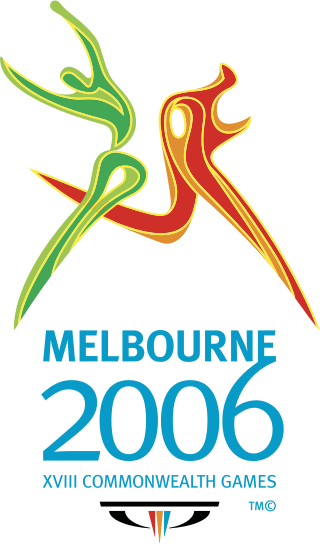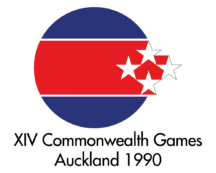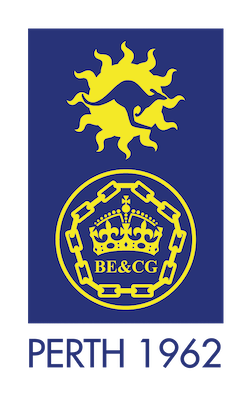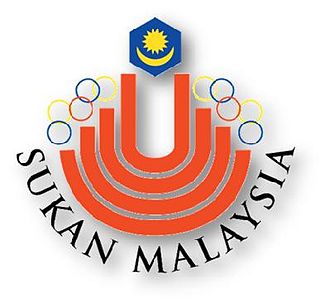
The Commonwealth Games is a quadrennial international multi-sport event among athletes from the Commonwealth of Nations, which consists mostly, but not exclusively, of territories of the former British Empire. The event was first held in 1930 as the British Empire Games and, with the exception of 1942 and 1946, has successively run every four years since. The event was called the British Empire Games from 1930 to 1950, the British Empire and Commonwealth Games from 1954 to 1966, and the British Commonwealth Games from 1970 to 1974. The event removed the word British from its title for the 1978 Games and has maintained its current name ever since.

The 1950 British Empire Games were the fourth staging of what is now called the Commonwealth Games. It was held in Auckland, New Zealand, between 4 and 11 February 1950, after a 12-year gap from the third edition of the games. A documentary film of the games was made by the New Zealand National Film Unit. The main venue was Eden Park, although the closing ceremonies were held at Western Springs Stadium, see New Zealand at the 1950 British Empire Games. The fourth games were originally awarded to Montreal, Canada and were to be held in 1942 but were cancelled due to World War II.

The 2006 Commonwealth Games, officially the XVIII Commonwealth Games and commonly known as Melbourne 2006, were an international multi-sport event for members of the Commonwealth held in Melbourne, Australia between 15 and 26 March 2006. It was the fourth time Australia had hosted the Commonwealth Games. It was also the largest sporting event to be staged in Melbourne, eclipsing the 1956 Summer Olympics in terms of the number of teams competing, athletes competing, and events being held.
Kieren John Perkins is an Australian former freestyle swimmer. He specialised in the 1500-metre freestyle and won successive Olympic gold medals in this event in the 1990s. He won his first at the 1992 Olympics which he won in world record time and then at the 1996 Olympics when he defended his title. In total he won four Olympic medals.

The 1998 Commonwealth Games, officially known as the XVI Commonwealth Games, were a multi-sport event held in Kuala Lumpur, Malaysia. The 1998 games were the first held in Asia and the last Commonwealth Games of the 20th century. For the first time ever, the games included team sports. The other bid from the 1998 games came from Adelaide in Australia. Malaysia was the eighth nation to host the Commonwealth Games after Canada, England, Australia, New Zealand, Wales, Jamaica and Scotland. Around 3638 athletes from 70 Commonwealth member nations participated at the games which featured 214 events in 15 sports with 34 of them collected medals.

The 1990 Commonwealth Games were held in Auckland, New Zealand from 24 January – 3 February 1990. It was the 14th Commonwealth Games, and part of New Zealand's 1990 sesquicentennial celebrations. Participants competed in ten sports: athletics, aquatics, badminton, boxing, cycling, gymnastics, judo, lawn bowls, shooting and weightlifting. Netball and the Triathlon were demonstration events.

The 1958 British Empire and Commonwealth Games were held in Cardiff, Wales, from 18 to 26 July 1958. It was the sixth edition of what would come to be known as the Commonwealth Games, the second Games held in the United Kingdom, and the second held under the name British Empire and Commonwealth Games.

The 1962 British Empire and Commonwealth Games were held in Perth, Western Australia, from 22 November to 1 December 1962. Athletic events were held at Perry Lakes Stadium in the suburb of Floreat and swimming events at Beatty Park in North Perth. It was held after the 1962 Commonwealth Paraplegic Games for wheelchair athletes.

The 1974 British Commonwealth Games were held in Christchurch, New Zealand, from 24 January to 2 February 1974. The bid vote was held in Edinburgh at the 1970 British Commonwealth Games. The event was officially named "the friendly games". There were 1,276 competitors and 372 officials, according to the official history, and public attendance was excellent. The main venue was the QEII Park, purpose-built for this event. The Athletics Stadium and fully covered Olympic standard pool, diving tank, and practice pools were all on the one site. The theme song was "Join Together", sung by Steve Allen. The event was held after the 1974 Commonwealth Paraplegic Games in Dunedin for wheelchair athletes.

The Sukma Games is a biennial national multi-sport event involving young athletes from Malaysia's 13 states and 3 Federal Territories. The games are regulated by the National Sports Council of Malaysia, the state sports council of the respective member states, the Olympic Council of Malaysia and the National Sports association of the games respective sporting event. The logo was designed by Anuar bin Dan in 1986.

At the 1990 Commonwealth Games, the athletics events were held at the Mount Smart Stadium in Auckland, New Zealand, from 27 January to 3 February 1990. A total of 42 events were contested, 23 by male and 19 by female athletes.

New Zealand at the 1950 British Empire Games was represented by a team of 175 competitors and 24 officials. Selection of the host nation's team for the Games in Auckland, was the responsibility of the New Zealand Olympic and British Empire Games Association. New Zealand's flagbearer at the opening ceremony was Harold Nelson. The New Zealand team finished third on the medal table, winning a total of 53 medals, 10 of which were gold.

New Zealand at the 1990 Commonwealth Games was represented by a team of 224 competitors and 61 officials. Selection of the team for the Games in Auckland, New Zealand, was the responsibility of the New Zealand Olympic and Commonwealth Games Association. New Zealand's flagbearer at the opening ceremony was swimmer Anthony Mosse, and at the closing ceremony was cyclist Gary Anderson. The New Zealand team finished fourth on the medal table, winning a total of 58 medals, 17 of which were gold.

The 2017 Commonwealth Youth Games, officially known as the VI Commonwealth Youth Games, and commonly known as Bahamas 2017, or Nassau 2017, was the sixth edition of the Commonwealth Youth Games which started in 2000. The games were held from 19 to 23 July 2017 in Nassau, Bahamas. 64 nations participated at the games. The Bahamas 2017 was the largest international sporting event ever to be hosted in The Bahamas, and the largest-ever edition of the Youth Games, with up to 1300 athletes. During the opening ceremony the Prime Minister of the Bahamas Hubert Minnis declared the games officially open. It was the first the time that the tournament was opened by a prime minister instead of a monarch or a president.

The Commonwealth Paraplegic Games were an international, multi-sport event involving athletes with a disability from the Commonwealth countries. The event was sometimes referred to as the Paraplegic Empire Games and British Commonwealth Paraplegic Games. Athletes were generally those with spinal injuries or polio. The Games were an important milestone in the Paralympic sports movement as they began the decline of the Stoke Mandeville Games' dominating influence. The event was first held in 1962 and disestablished in 1974. The Games were held in the country hosting the Commonwealth Games for able-bodied athletes, a tradition eventually fully adopted by the larger Olympic and Paralympic movements.
The swimming competitions at the 2014 Commonwealth Games in Glasgow, Scotland took place from 24 to 29 July at the Tollcross International Swimming Centre.

New Zealand competed at the 2018 Commonwealth Games in Gold Coast, Australia, from 4 to 15 April 2018. It was the nations's 21st appearance at the Commonwealth Games, having competed at every Games since their inception in 1930. The New Zealand team consisted of 251 athletes, 130 men and 121 women, across 17 sports.

The fourth Commonwealth Paraplegic Games were held in Dunedin, New Zealand from 13 to 19 January 1974. The Games were opened by Sir Denis Blundell, Governor-General of New Zealand.

Swimming at the 2018 Commonwealth Games was held at the Gold Coast Aquatic Centre in the Gold Coast, Australia from 5 to 10 April. A total of 50 events were scheduled. Of the 50, 38 were for able-bodied athletes. The remaining 12 were for para sport athletes.

Swimming was among the sports contested at the 2022 Commonwealth Games, held in Birmingham, England. The sport had been staged in all twenty-one previous editions of the Games thus far, and will be contested in England for the third time.














